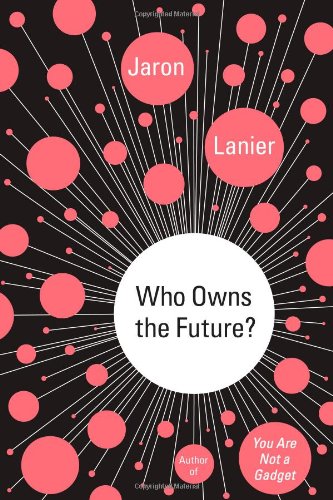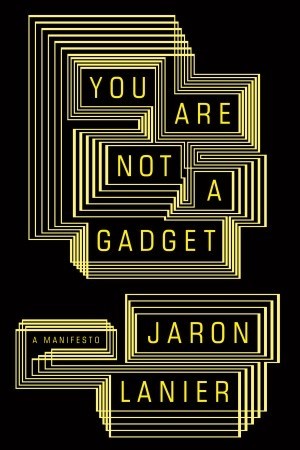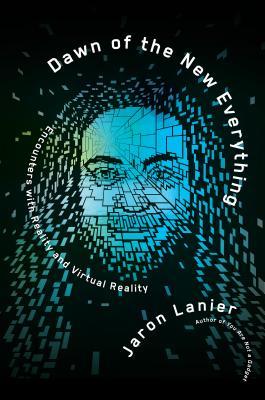
Ten Arguments for Deleting Your Social Media Accounts Right Now
Jaron Lanier explains the toxic effects of social media which lie at the heart of its design, and explains why liberating ourselves from its hold will transform our life and ultimately the world for the better.
Buy
Who Owns The Future?
Jaron imagines a world, where economic power is given back to creators. Based on ancient philosophy and the latest technology, he proposes a radical system that truly rewards endeavour - be it media or manufacturing - and at end preserves human dignity.
Buy
You Are Not A Gadget: A Manifesto
In this books, Jaron Lanier reveals how the internet is deadening personal interaction, stifling genuine inventiveness and even changing us as people. It talks about how the web and softwares are reshaping the world around us.
Buy
Dawn of the New Everything: Encounters with Reality and Virtual Reality
It is about what it means to be human at a moment of unprecedented technological possibility. n this book he argues that virtual reality can actually make our lives richer and fuller.
BuyBook Summary

The ten arguments for deleting social media are :
1. Takes away your free will.
2. Contributes to the insanity of our world.
3. Turns you into a jerk.
4. Manipulates truth.
5. Is destroying the meaning in every word you say.
6. Annihilates your ability to be empathetic.
7. Makes you miserable.
8. Takes away your economic dignity.
9. Is the reason politics are so awful and impossible.
10. Hates you.

Five lessons from the book are :
1. Society Will Keep Getting Poorer When Digital Networks Become Even More Sophisticated
2. Ordinary People Are Not Compensated for The Information Taken From Them
3. Free Online Services Are Destroying Jobs
4. The Rise of The Siren Servers
5. We Need To Create More Opportunities For People Online

The 3 greatest lessons in this book are:
1. Technology is changing the value of individuals and putting people into boxes.
2. The internet facilitates dangerous mob behavior because of the anonymity it provides.
3. If we change the way the online world works we might be able to re-focus on the worth of human beings as opposed to the hive mind it promotes

An inventive blend of autobiography, science writing, philosophy, and advice, this book tells the wild story of his personal and professional life as a scientist, from his childhood in the UFO territory of New Mexico, to the loss of his mother, the founding of the first start-up, and finally becoming a world-renowned technological guru. Understanding virtual reality as being both a scientific and cultural adventure, Lanier demonstrates it to be a humanistic setting for technology.